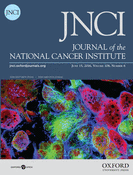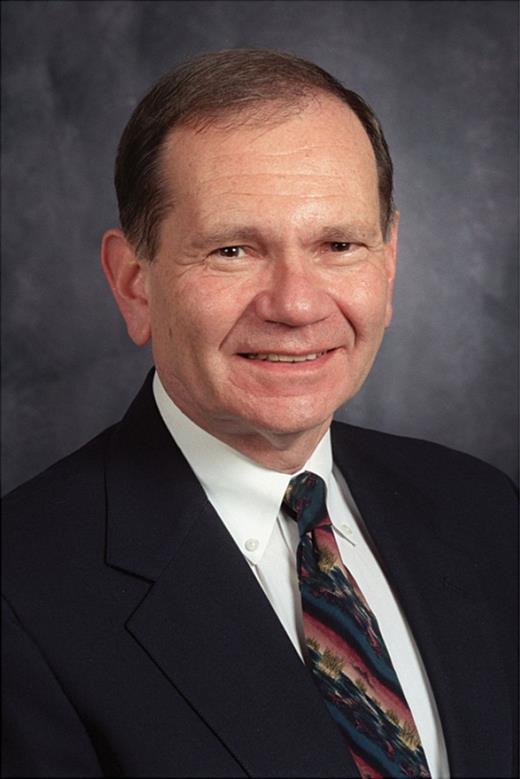-
PDF
- Split View
-
Views
-
Cite
Cite
Mike Fillon, Continuing To Smoke After Breast Cancer Diagnosis Lowers Survival Rate, JNCI: Journal of the National Cancer Institute, Volume 108, Issue 6, June 2016, djw160, https://doi.org/10.1093/jnci/djw160
Close - Share Icon Share
After being told they have breast cancer, many female smokers say “what the heck?” and continue to smoke, figuring they have nothing more to lose. A new study finds that’s not true—that quitting is advantageous even after such a dire diagnosis.
The study included more than 20,600 women with breast cancer. Those who quit had a 33% lower mortality rate from breast cancer than those who kept smoking. The study appeared Jan. 25, 2016, in the Journal of Clinical Oncology. The authors claim this is one of the largest studies of survival outcomes based on smoking habits in women with a breast cancer diagnosis who included their smoking habits both before and after receiving the news of their diagnosis.
Fifty years ago, it was considered unladylike for women to smoke cigarettes, and when they did, it was at night, in secret, and only while sitting. Then in 1968, Virginia Slims were marketed to young professional women with the slogan “You’ve come a long way, baby.” Soon after, other brands and advertising geared toward hooking female smokers appeared.
According to the U.S. Surgeon General Report in 2014, the disease risks for women in the United States have risen sharply over the last 50 years with breast cancer as the second leading cause of female cancer deaths; plus, women are now equal to men for lung cancer, chronic obstructive pulmonary disease, and cardiovascular diseases, the report states.
In this new population-based prospective observational study, researchers compared the smoking status of women in Wisconsin, New Hampshire, and Massachusetts before and after breast cancer diagnosis. The Collaborative Breast Cancer and Women’s Longevity Study included 20,691 women, aged 20–79 years, diagnosed with incident localized or regional invasive breast cancer between 1988 and 2008. The researchers compared the causes of death of four groups of women: those who never smoked, smokers who quit before diagnosis, smokers who quit after diagnosis, and smokers who continued to smoke after diagnosis.
According to lead researcher Michael Passarelli, Ph.D., M.P.H., M.S., postdoctoral scholar in the Epidemiology and Biostatistics department at the University of California, San Francisco, School of Medicine, follow-ups were made on 4,562 of these women, on average, 6 years after diagnosis. Data collected from subjects included whether they had smoked at least 100 cigarettes during their lifetime, how old they were when they began smoking, and the average number of cigarettes they smoked daily.
The researchers controlled for other risk factors, including alcohol usage and body mass index. Hazard ratios were calculated according to smoking status for death as a result of not only breast cancer but also cancers of the lung, pharynx, or intrathoracic organs, along with other cancers as well as respiratory and cardiovascular disease.
By 2010, 6,778 study subjects had died. The leading causes of death were breast cancer and cardiovascular disease.
Passarelli said that during the timeframe of the study, the prevalence of smoking among women was about 20% and that the prevalence of smoking in women on average about 6 years after their breast cancer diagnosis was 10%. “This means that only half of those smoking up to the time of their diagnosis quit long term. I believe this 50% quit proportion after cancer can be improved upon.”
Jamie S. Ostroff, Ph.D., chief of the behavioral sciences service and director of the Tobacco Treatment Program at Memorial Sloan–Kettering Cancer Center in New York, agrees. “This study contributes to the robust literature that assessing and treating tobacco dependence in the context of cancer care is a quality of care indicator that needs to be routinely adopted.”
Unfortunately, noted Passarelli, those who continue to smoke after being diagnosed with cancer are some of the hardest people to persuade to quit. Many smokers doubt that quitting after cancer offers any benefit. Specifically, breast cancer patients may find it too hard to focus on quitting, and some believe it is just too late to make a meaningful improvement in long-term prognosis. “Our study suggests that for breast cancer survival, it is not too late.”
Passarelli said smokers are more likely to have treatment-related complications, such as toxic effects on the heart, and may need to stop treatment earlier than intended. He noted that the same issues arise in treating many cancers. “I would say that this could be a way that our results extend to patients of other cancers. In fact, many women with breast cancer are more likely to die from a cause other than their breast cancer.”
For example, in addition to a lower mortality rate from breast cancer for those who quit smoking after diagnosis, researchers also found a reduced rate for respiratory cancer. That conclusion did not surprise Norman H. Edelman, M.D., vice president for Health Sciences and professor of preventive medicine, internal medicine, and physiology and biophysics at the State University of New York at Stony Brook. He is also executive vice president and chief medical officer of the American Lung Association.
Norman H. Edelman, M.D.
“There used to be this myth that when people get severe lung disease or lung cancer, they would say the damage is done and continue smoking,” said Edelman. “There’s now plenty of evidence that quitting smoking with regard to chronic obstructive pulmonary disease that that’s not true, that the damage progresses, so quitting smoking at any time improves health and survival, and we’re beginning to see that for those being treated for lung cancer do less well if they continue to smoke after diagnosis.”
An editorial appearing in the same issue as Passarelli’s study reports that half of medical oncologists do not aggressively promote smoking-cessation methods. The main reasons cited include unclear evidence of benefit; lack of time; priority of primary treatment; and inadequate training and expertise, especially when patients exhibit high psychological stress and depression.
The authors of the editorial and Ostroff point out that the National Comprehensive Cancer Network has published new Guidelines for Smoking Cessation to help oncologists advise patients. “[The American Society of Clinical Oncology] also has some wonderful resources and toolkits oncologists and clinicians can access to help their patients quit smoking,” said Ostroff, a member of the society’s tobacco subcommittee.



